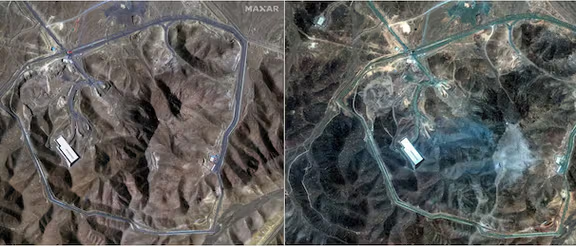US strikes on Iran meant to ‘escalate to de-escalate,’ Rubio says

US Secretary of State Marco Rubio says Donald Trump ordered airstrikes on Iranian nuclear facilities in June in a way that limited the scope of the conflict and avoided a broader war.

US Secretary of State Marco Rubio says Donald Trump ordered airstrikes on Iranian nuclear facilities in June in a way that limited the scope of the conflict and avoided a broader war.
“The first thing to understand about that operation it was very – it was very defined. It was targeted. It wasn’t about starting a broader war," said Rubio in a Thursday interview.
"It was actually an effort to escalate in order to de-escalate,” he told Raymond Arroyo of EWTN’s The World Over.
On June 22, Trump ordered airstrikes on nuclear sites at Isfahan, Natanz, and Fordow two days before brokering a ceasefire to a 12-day war in June between Iran and Israel.
"It had a very clear objective. He established the objective. His military planners offered him a timeline, and then there were checkpoints along that timeline where we had to go back and check with the President: Are you okay? Are you okay?" Rubio said on Thursday.
The planning and execution were calm, with the president relying on past experience in office to avoid expanding the operation, according to Rubio.
Once the strikes were complete, Rubio said, the president was not inclined to order further attacks or seek additional targets.
"He had a very clear objective in mind, and he achieved it. And we immediately pivoted now to our goal was: okay, we achieved this objective, now how do we end this war on the 12th day and not let it become a regional war."
A US-brokered ceasefire was announced on June 24 between Iran and Israel after Tehran launched a retaliatory airstrike against a US airbase in Qatar.
The Israeli campaign against Iran during the 12-day war killed hundreds of Iranians including civilians, military personnel and nuclear scientists. Iran's retaliatory missile strikes also killed 29 Israeli civilians.